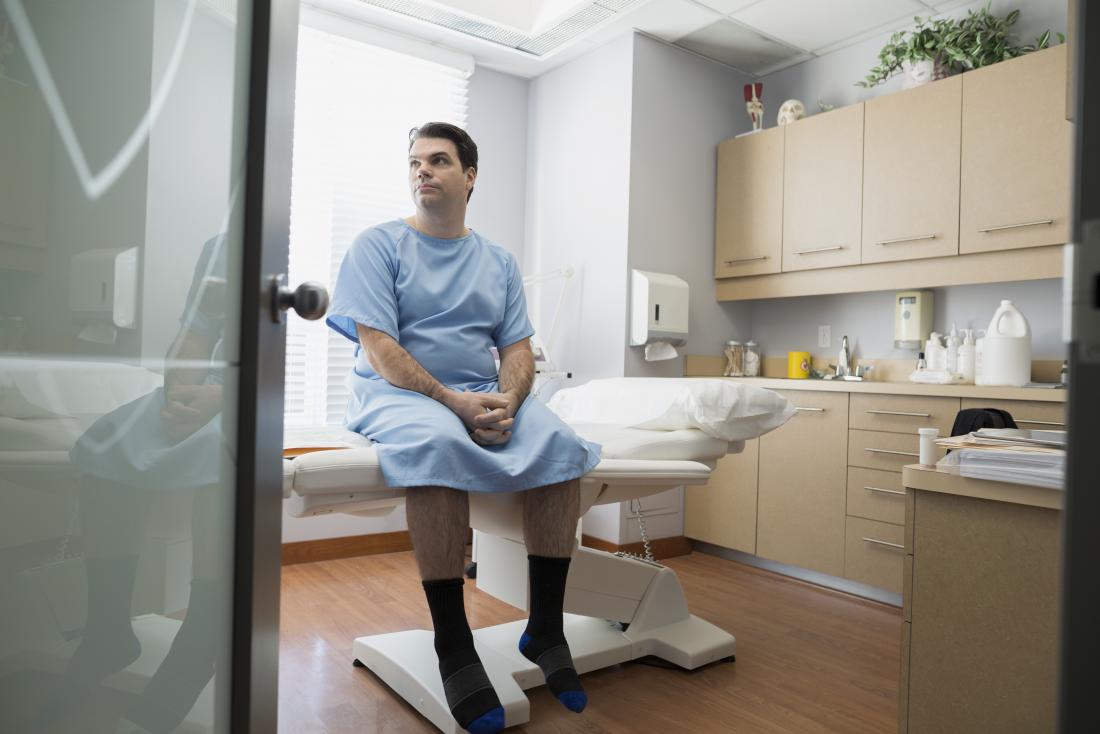According to the Centers for Disease Control and Prevention (CDC), it is the most commonly reported bacterial sexually transmitted infection (STI) in the United States.
In this article, learn about the symptoms of chlamydia in males, as well as its transmission, treatments, and possible complications.
Symptoms of chlamydia in males
Most people with chlamydia do not experience any symptoms. If a person does have symptoms, these may not develop for several weeks after the initial infection.
The CDC note that if a male experiences chlamydia symptoms, they will typically arise from one of two complications: urethritis or epididymitis.
Urethritis

Unusual discharge from the penis or pain while urinating are potential symptoms of chlamydia in men.
Urethritis is an infection of the urethra, the tube that runs through the penis.
The typical symptoms of urethritis in men include:
- discharge from the penis
- dysuria, or pain while urinating
- stinging or itching in the urethra
- irritation at the tip of the penis
Epididymitis
Epididymitis is an infection of a tube at the back of the testicles that stores and carries sperm.
According to the Urology Care Foundation, a person with epididymitis will experience pain in the testicle, and it may spread to the groin.
Other symptoms
Chlamydia can also affect the rectum. If a person experiences rectal symptoms, these may include:
- rectal pain
- discharge
- bleeding
Chlamydia can cause conjunctivitis, an inflammation of the eye, but this is rare.
Chlamydia can also infect the throat, but most people will not experience this or other symptoms. If they do, they may have a sore throat.
Transmission
According to the CDC, chlamydia is typically transmitted through sexual contact, but it can occur whenever the bacteria enters another person’s body.
Transmission usually takes place during penetrative sex, whether vaginal or anal. However, it can also spread through oral sex or the sharing of sex toys.
Even if a person has received treatment for chlamydia, it is still possible for them to become infected again.
Treatment

A doctor may prescribe antibiotics to treat chlamydia in men.
In the vast majority of cases, antibiotics can successfully treat chlamydia. Typical antibiotics for chlamydia include azithromycin and doxycycline. Chlamydia treatment is the same for males and females.
A doctor may prescribe antibiotics as a single larger dose or as a series of smaller doses over 7 days.
To make sure that they do not transmit the infection, a person should avoid having sex for 7 days after a single dose of antibiotics, or until the completion of a 7-day course of antibiotics.
It is vital for a person with chlamydia to inform any sexual partners, as they may also need testing and treatment. Some health services offer to contact previous sexual partners anonymously.
Taking antibiotics exactly as prescribed will help prevent side effects. It may also help reduce antibiotic resistance in the general population.
Prevention
Chlamydia is typically spread through sexual contact, so using barrier protection, such as latex condoms, is an effective way to prevent infection.
Ways to prevent chlamydia transmission include:
- using a condom during penetrative sex
- using a condom on a penis during oral sex
- using a dental dam over female genitals during oral sex
- either not sharing sex toys or cleaning and using barrier protection over sex toys
Complications

Chlamydia infections can cause reactive arthritis.
With treatment, people rarely experience complications from a chlamydia infection. However, without treatment, chlamydia in males may cause or increase the risk of:
- prostatitis, the inflammation of the prostate gland
- scarring of the urethra
- infertility
- epididymitis, an infection of a tube in the testicle
The American College of Rheumatology report that chlamydia infections can also cause reactive arthritis. The symptoms of reactive arthritis are pain in a person’s heels, toes, fingers, lower back, or joints.
When to see a doctor
Most people do not experience any symptoms of chlamydia. It is therefore essential to get tested regularly, including whenever a person starts seeing a new sexual partner.
If an individual experiences chlamydia symptoms, it is essential to see a doctor for a diagnosis. Many of the symptoms are similar to those of other infections, which may require different treatments.
Likewise, if a person’s symptoms have not gone away after a course of antibiotics, they should return to the doctor.
If an individual learns that they have chlamydia, it is crucial to inform recent sexual partners, so that they can also receive testing and treatment.
